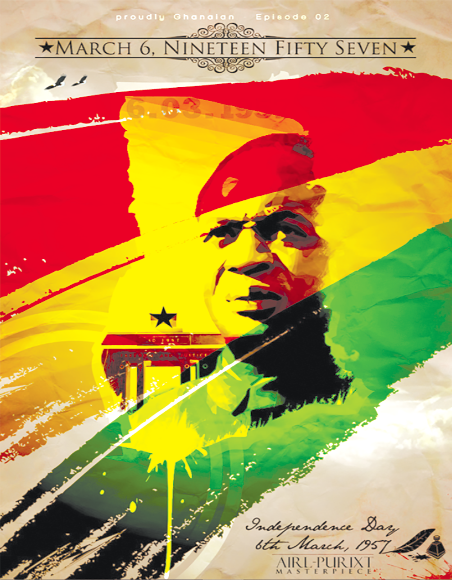
Bondage in freedom
The scenario always amused me. In the cottage where we lived, it was normal to catch a hen and check to see if it was about to lay eggs.
After checking, I would put the hen on the ground, hold on to it for a while, and then take off my hands.
Now that I was not holding on to the fowl anymore, you would think it would realise its freedom and run off to join the others.
But no; for some time, it would lie down, thinking it was still being held.
To a large extent, that is what happens to us when we walk away from bondage to freedom. For a long while, it may seem as if we are still in captivity whereas we are free.
This is because slave masters, like our colonial rulers before our independence, like to enslave the mind, brainwash the mental faculty, and then introduce new concepts that would ensure perpetual enslavement.
That was what the French wanted to impose on their African colonies with their policy of assimilation.
They sought to inculcate in them principles that would ensure a never-ending slavery to their masters.
That way, even after independence, they would still hang on to their slave masters’ aprons.
The colonies were wise enough to resist the assimilation policy but they paid severely for it when their colonial masters withdrew all their support and even destroyed immovable structures.
Before March 6, 1957, the agitations of Ghana’s founding fathers were focused on one key desire—freedom from colonialism.
Afterward, however, the real work of nation building and attitudinal change needed to be inculcated in the new Ghanaian.
Sixty-five years later, how free are we?
Remember the analogy of my hen. It was free to go but it still remained under my feet, giving me the opportunity to recapture it.
The fowl was physically free but mentally, it was still in bondage. That is “mental slavery”.
The term “mental slavery” was popularised by Bob Marley in his ‘’redemption song’’, “Emancipate yourselves from mental slavery . . .” But the concept has always been there; namely, that true freedom is a condition of the mind.
By propounding the concept of “neo-colonialism”, President Kwame Nkrumah recognised the possible presence of a new form of bondage beyond independence.
Similarly, by the line “Help us to resist the oppressors’ rule,” our National Anthem also acknowledges that oppressors other than the British colonisers will be found among us—human or nonhuman.
Independence can be meaningless unless it liberates us mentally, spiritually and emotionally. How “independent” can we say we have when we are entangled in all kinds of lustful desires that seriously enslave us?
Nelson Mandela has been quoted as saying that if he were to hold a grudge against the whites who imprisoned him and subjected black South Africans to brutalities he would still be in prison.
That statement is profound, for it confirms the truth that if we begrudge others and fail to forgive them that is a prison condition.
As long as we hold others in bondage we are also imprisoned by our own attitude.
The day I heard some young people say they must smoke cigarette and wash down the nicotine with liquor in order to feel well, I could detect the depth of their enslavement to their addictions.
Those who listened to the Lord Jesus’ teaching on this subject must have been surprised to hear him say that when a person lives under the influence of wrongdoing, he is actually a slave to sin. He said, “Truly, truly, I say to you, everyone who practices sin is a slave to sin” (John 8:34).
The apostle Paul echoed this truth when he wrote, “Do you not know that if you present yourselves to anyone as obedient slaves, you are slaves of the one whom you obey, either of sin, which leads to death, or of obedience, which leads to righteousness?”
Therefore, true freedom is what Jesus described: “When the Son shall set you free, you shall be free indeed” (John 8:36)—that is, being set free from the captivity of Satan and sin.
While Jesus gives us eternal life in abundance, Satan enslaves us, steals our life, kills us, and drags us into endless destruction—if we allow him.
When I first paid a visit to the Tamale prison to worship with the inmates at a Sunday afternoon service, I noticed their freedom.
The joy with which they expressed themselves, the testimonies some of them shared, and the hope they articulated—even in their physical bondage—demonstrated the freedom they felt inside.
This kind of freedom transcends the physical and reaches the spiritual; surpasses the temporary and embraces eternity.
The writer is a publisher, author, writer-trainer and CEO of Step Publishers.
E-mail: lawrence.darmani@gmail.com

